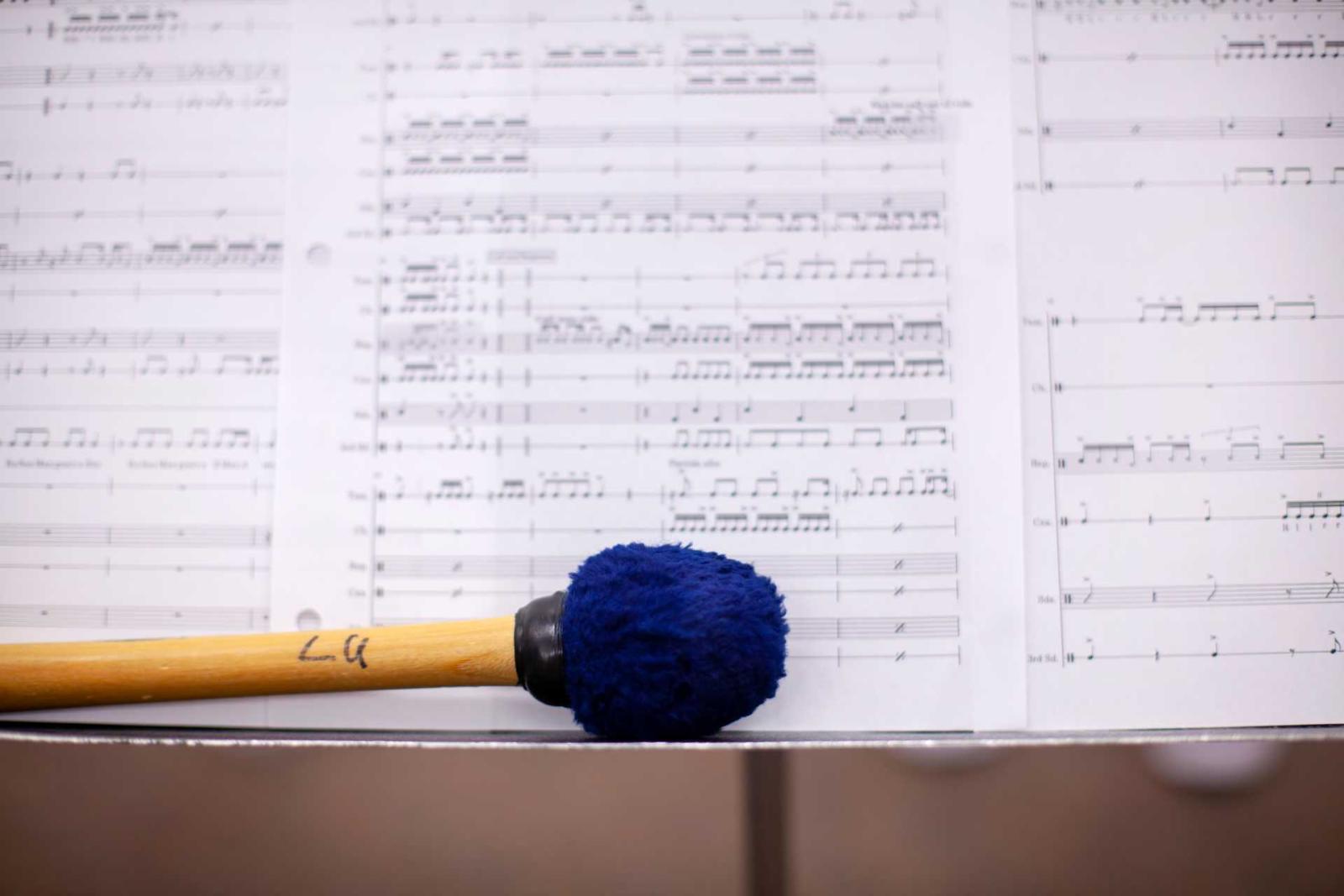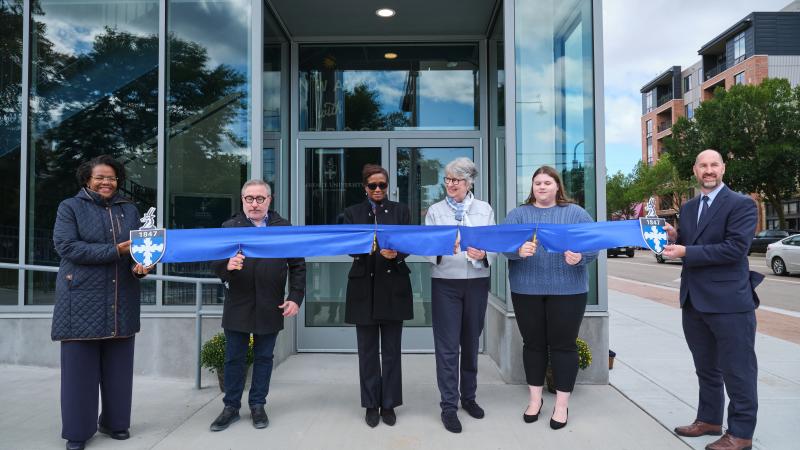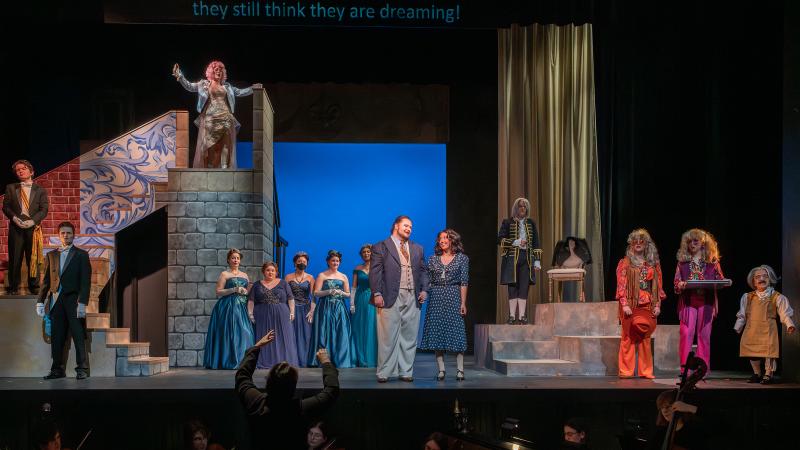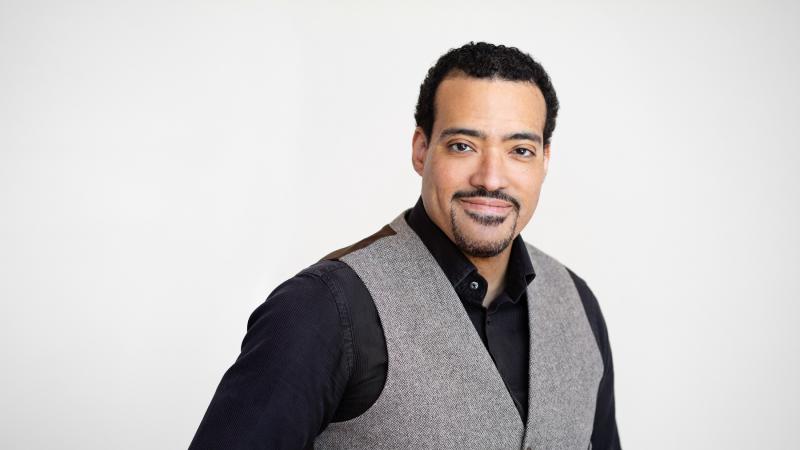Brian Pertl calls it a “true liberal arts music major.”
Lawrence University has reframed its bachelor of arts in music (B.A.Music) major to make it more open-ended in a student’s pursuit of whatever slice of the music world that interests them, a change the dean of the Conservatory sees as liberating.
“No big deal, just the coolest, most flexible B.A. music major on earth,” Pertl said.
The newly retooled B.A.Music major differs from the bachelor of music, bachelor of musical arts, and five-year double degree options in its flexibility. It is no longer centered around Western classical music and no longer requires an audition on a Western classical instrument.
“Anyone who is serious about any aspect of music or any genre of music could pursue this major,” Pertl said.
Not only is there no audition requirement, there are only three courses that are required—an intro course, a musicology course, and a Senior Experience course.
“Each student then designs their own unique musical pathway, with close consultation with a faculty advisor,” Pertl said.
This is the second significant addition to Lawrence’s musical offerings in the past three years. In 2019, the bachelor of musical arts (B.M.A.) degree was launched, focused on jazz and contemporary improvisation. It also widened the musical path into the Conservatory and has since drawn students interested in everything from jazz to bluegrass to mariachi.
Here are the varied ways you can pursue an education in music at Lawrence:
B.Mus: A pre-professional music degree, it allows students to major in performance, music education, theory, or composition. There also is a jazz emphasis in performance or composition. About two-thirds of the courses are in music.
B.M.A.: This also is a pre-professional music degree, but it is focused on jazz and contemporary improvisation. It allows for more genre flexibility beyond the classical Western canon and leans into musical fluency needed for life as a 21st century musician. About 50% of the coursework is in music, the other half in the liberal arts.
B.A.Music: This is a liberal arts music major, with one-third of the required coursework in music, the other two-thirds in fields of the student’s choosing.
Five-Year Double Degree: This is a five-year program that allows the student to combine a bachelor of arts degree in the college and a bachelor of music degree in the Conservatory. It’s one of the benefits of attending a university that features both a world-class Conservatory and nationally ranked liberal arts college.
Expanding the opportunities within the B.A.Music program offers a more varied path into Lawrence for music-minded students and a chance to build toward a wider array of careers within the world of music. That’s a win for Lawrence and a win for prospective students, Pertl said.
“A student still could be focused on classical music performance but it isn’t required,” he said. “Instead, they might be a singer-songwriter, a music producer or recording engineer, an aspiring composer, musicologist, ethnomusicologist, or music theorist. They might be interested in dance, arts management, music therapy, or music and entrepreneurship. They might play fiddle, or sitar, or modular synthesizers.”
Opening that door just a little wider to all musical experiences is what the Conservatory of Music is all about, Pertl said.
Another benefit, he said, is that the B.A.Music major brings new flexibility around ensemble requirements. That’s huge for student-athletes who also are interested in music. They can now craft a course schedule that doesn’t restrict their opportunities to participate in athletics.
Pertl applauded Associate Professor of Music Julie McQuinn and a team of Conservatory faculty for leading the effort to reshape the major.
“The beauty of this major is that it welcomes a much broader variety of music and music makers into the Conservatory, and that’s great news and more great music for everyone,” Pertl said.




